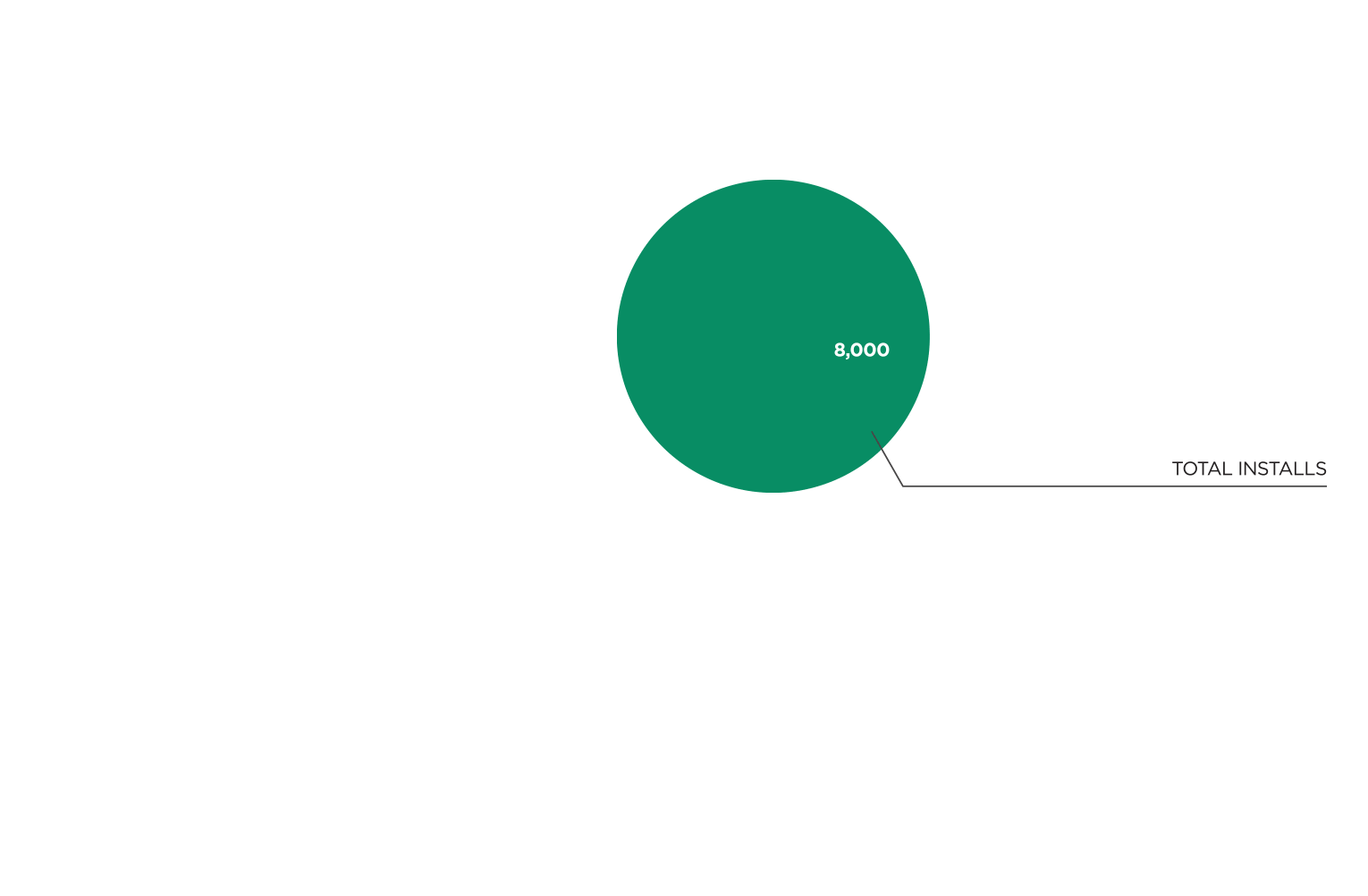This is the 4th in a 5-week series on Configurable Reconciliation. So far, we’ve covered Lookback Windows in week #1, Probabilistic Attribution in week #2 (see iOS 14+ restrictions) and Device Attribution in week #3. This week we’re going to look at the power of configurable View-Through Attribution.
While the mobile ad space is certainly still developing, most advertisers understand the importance of tracking clicks and installs. Savvy advertisers use these data points to streamline and optimize their ad spend. Some of these same advertisers are also tracking impressions to understand their click-through rates (CTRs) as well as adding a layer of accountability to ad-network reporting.
Impression tracking is available through a few mobile attribution & analytics providers. Tracking impressions is only the first step. The real insight comes with impression attribution or view-through attribution. There are several reasons why view-through attribution is important.
View-through attribution is the capability to credit an install or in-app event to a specific impression. This also enables insight into the influence impressions have on downstream engagements.

The Problem
Attributing clicks to installs is the first step to understanding mobile ad effectiveness, but it does nothing to uncover the truth of click-through rate (CTR) or effective frequency. The only way to understand these metrics is by tracking impressions in addition to clicks, installs, and events.
Part of what creates a healthy ecosystem is transparency. Historically, only ad networks have had any insight into impressions served. By introducing 3rd-party tracking into the process, an independent source can verify impression volume and effectiveness.
In the same way that click attribution rules can vary between networks, impression tracking and view-through attribution include a variety of configurable aspects. Ad networks count impressions in different ways and attribute based on different criteria.
The Solution
Configurable view-through attribution puts the controls around defining an impression and the rules for attribution into the hands of the advertiser. There are several reasons why advertisers should be leveraging view-through attribution.
Gaining insight into brand lift.
As marketing budgets continue to shift toward mobile, brands need a way to measure lift outside of installs and post-install events. For example, Vizio may have a companion app for their devices, but they really want to sell hardware. By simply tracking impressions, the Vizio team can understand the reach of their ad budget, independent of driving installs. Additionally, view-through attribution with Kochava includes full influencer reporting. This insight can tie impressions which happened outside the configured lookback window, to an app install. Thus, Vizio can see how many times a user saw their ad impressions before installing the companion app for their device(s), which means they made a purchase.
Understand the CTR of a campaign.
By tracking impressions as well as clicks, the advertiser can understand the relationship between how many times an ad is served to when a user clicks on the ad.
Catch users flying under the radar.
As hyper-personal targeting increases, a segment of users independently pursue a product without clicking on an ad to avoid retargeting and overwhelming ad personalization. View-through attribution allows you to attribute an impression to a user behavior without the user ever clicking on the ad.
Understanding the comprehensive impact of your mobile campaigns requires measuring every possible influencing aspect. View-through attribution provides insight into every aspect of user behavior connecting the dots from ad impression all the way through post-install activity. When it comes to your ad strategy, view-through attribution is the missing piece.
For a list of networks that support view-through attribution, check out https://www.kochava.com/new-network-integrations/.
Configurable Attribution #5 – Get the Reports You’re Missing






